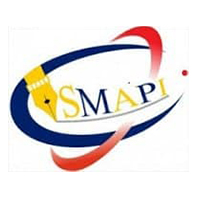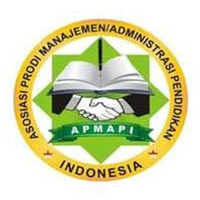Level of Satisfaction on Sports Facilities and Infrastructure among Students of Sport-Specific Class in A Senior High School
Downloads
Alves, H., Mainardes, E. W., & Raposo, M. (2010). A relationship approach to higher education institution stakeholder management. Tertiary Education and Management.
https://doi.org/10.1080/13583883.2010.497314
El-Hilali, N., Al-Jaber, S., & Hussein, L. (2015). Students' satisfaction and achievement and absorption capacity in higher education. Procedia - Social and Behavioral Sciences. https://doi.org/10.1016/j.sbspro.2015.02.384
Fintor, J. G. (2013). Factors determining student achievement. Hungarian Educational Researcch Journal. https://doi.org/10.14413/herj2013.03.06
Hill, M. C., & Epps, K. K. (2010). The impact of physical classroom environment on student satisfaction and student evaluation of teaching in the university environment. Academy of Educational Leadership Journal.
Keputusan Walikota Yogyakarta Nomor 57/KEP/2010 tentang Penunjukan SMA N 4 Kota Yogyakarta sebagai Rintisan Sekolah Olahraga.
Menteri Riset dan Pendidikan Tinggi. (2015). Peraturan Pemerintah RI Nomor 19, Tahun 2005, tentang Standar Nasional Pendidikan.
Musa, M. F., & Baharum, Z. A. (2012). Higher education physical assets and facilities. Procedia - Social and Behavioral Sciences. https://doi.org/10.1016/j.sbspro.2012.08.051
Ozturk, I. (2011). The role of education in economic development: a theoretical perspective. SSRN Electronic Journal. https://doi.org/10.2139/ssrn.1137541
Parasuraman, A., Zeithaml, V. A., & Berry, L. L. (1988). Serqual:
a multiple-item scale for measuring consumer perceptions of service quality. Journal of Retailing. https://doi.org/10.1016/S0148-2963(99)00084-3
Republik Indonesia. (2003). Undang-undang RI Nomor 20, Tahun 2003, tentang Sistem Pendidikan Nasional. Jakarta: Republik Indonesia
Republik Indonesia. (2005). Undang-undang RI Nomor 3, Tahun 2005, tentang Sistem Keolahragaan Nasional. Jakarta: Republik Indonesia
Sumaryanto. (Juli 2010). Pengelolaan Pendidikan Kelas Khusus Olahraga Menuju Tercapainya Prestasi Olahraga. Makalah. Disajikan dalam Seminar Kelas Khusus Olahraga, di SMA N 4 Yogyakarta.
Surat Keputusan Kepala SMA N 4 Yogyakarta Nomor 800/023 Tahun 2012 tentang Pembentukan Tim Pengelola Kelas Khusus Olahraga Tahun Pelajaran 2012/2013.
Weerasinghe, S., & Fernando, R. L. . (2017). Students' satisfaction in higher education literature review. American Journal of Educational Research. https://doi.org/10.12691/education-5-5-9
Wicker, P., Hallmann, K., & Breuer, C. (2013). Analyzing the impact of sport infrastructure on sport participation using geo-coded data: evidence from multi-level models. Sport Management Review. https://doi.org/10.1016/j.smr.2012.05.001
Wilkins, S., & Balakrishnan, M. S. (2013). Assessing student satisfaction in transnational higher education. International Journal of Educational Management. https://doi.org/10.1108/09513541311297568
Authors who publish with this journal agree to the following terms:
- The copyright of the accepted for publication articles shall be assigned to Jurnal Manajemen Pendidikan (JuMP) as the publisher of the journal. The intended copyright includes the rights to publish articles in various forms (including reprints).
- Jurnal Manajemen Pendidikan (JuMP) maintain the publishing rights of the published articles.
- Authors are permitted to republish or disseminate published articles by sharing the link/DOI of the article at Jurnal Manajemen Pendidikan (JuMP). Authors are allowed to use their articles for any legal purposes deemed necessary without written permission from Jurnal Manajemen Pendidikan (JuMP) with an acknowledgment of initial publication to this journal.













